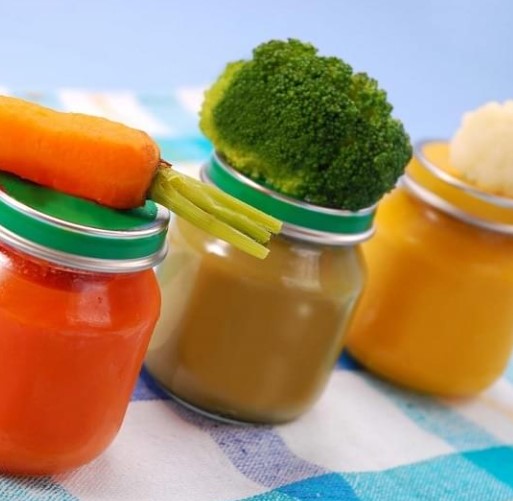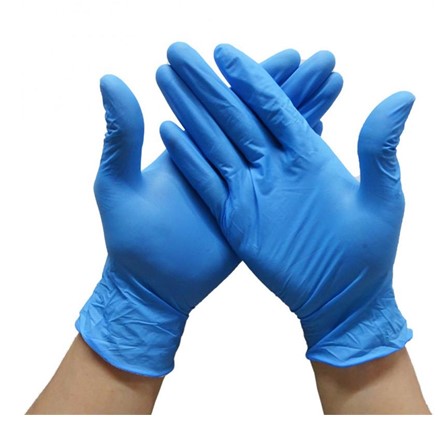Retailers will be allowed to food-share only 1% of their revenue

According to the deputy, food sharing should be exempt from VAT, and the volume of food donated to charity should be limited to 1% of the revenue for the previous year. The explanatory note states that this will help control the use of tax-exempt funds. In total, eight groups of goods can be distributed for food sharing, including fresh vegetables and fruits , flour products, cereals and pasta, prepared foods, baby food , juices, water, tea and coffee .
Every year in Russia more than 17 million tons of food waste are generated, approximately 29% of which comes from trade and catering . This volume can be estimated at 480 billion rubles. — 2.6% of the turnover of all retail, says the explanatory note. According to data for the third quarter of 2023, about 14.8 million people have incomes below the subsistence level, the parliamentarian explained. He noted that a third of the family budget of low-income families is spent on food . This situation can be changed if the trade becomes more active in donating food that is about to expire as a support to those in need. The main problem now is that it is more economical for retailers to recycle such goods rather than donate them to charity. In the first case, retail can compensate for the 20% VAT paid, but in the second - not.
The changes also include fines for companies that distribute expired products to the public. Legal entities can be fined for such actions in the amount of up to 300 thousand rubles. Deputy head of the Ministry of Industry and Trade Viktor Evtukhov told Izvestia that he sees no obstacles to the implementation of such an approach. He noted that donating leftover food products to charity has clear benefits: helping those in need and reducing environmental problems by reducing waste generation. Evtukhov emphasized that it is proposed to donate to charity only those goods that meet legal requirements and have an acceptable shelf life.
President of the Rus Food Bank charity foundation Yulia Nazarova said that food sharing technology is an effective solution to both social and environmental problems. “In this regard, we fully support the current bill , since thanks to it, food sharing technology will become part of companies’ own business processes, which means the volume of assistance will significantly increase and more people in need will receive support from us,” she explained. Nazarova also expressed hope that the list of goods that can be transferred without paying VAT will expand.
Nazarova noted that in order to redistribute such large volumes of products, it is necessary to comply with two key factors: the presence of a developed infrastructure and professional personnel who know how to properly build the entire chain, understand how and with what categories of products you can work, what requirements exist for them ( including quality).
Executive Director of ANO Foodsharing Alexandra Kumpan said that food sharing services receive food that trade and catering organizations do not have time to sell. The share of such products, as a rule, does not exceed 2-3% of the company's turnover. Therefore, the limit of 1% of revenue should be comfortable for those who donate products. In addition, the main range that food sharing services work with are products that do not require special storage conditions. The proposed legislation takes these product categories into account, she noted.
Leading Russian retail chains are already using food sharing to prevent food losses in stores. “The model is as follows: volunteers from the Food Sharing ANO come to retail outlets every day. Together with store employees, they ensure the suitability and safety of the products. After this, their transfer is recorded in the appropriate act,” says Koopman. — On the same day, volunteers distribute food among their wards, also reflecting this in special acts. Typically, each volunteer has three to five families that he helps on a regular basis.” She clarified that in 2023, ANO Foodsharing managed to save more than 100 tons of suitable products in Moscow from disposal. Project volunteers distributed this amount among almost 5 thousand people. Eliminating the tax barrier will help make food sharing more economically attractive than sending food to landfills, she believes.
The X5 Group press service said that they welcome initiatives aimed at developing social investments and charitable projects. They noted that now companies are not engaged in food sharing en masse, since there are tax restrictions. At the moment, the obligation to restore the amounts of VAT accepted for deduction on those goods that go to charity has not been canceled, so retail pays tax as if it were selling these products, and not giving them to those in need. According to X5 Group, exemption from this obligation when donating goods to charity, even in the amount of 1% of revenue, will be a good incentive for more active development of food sharing in our country.
X5 Group and Magnit, together with ANO Foodsharing and the Rus food bank, have launched a retail food sharing program in 2022. As part of the project, they donate bakery products, groceries, fruits, vegetables, and non-food items to those in need. At the end of 2023, more than 95 thousand people received assistance through food sharing. They were given more than 56 tons of food and non-food products with an unexpired shelf life and suitable for use. Today food sharing covers Moscow, St. Petersburg , Chelyabinsk, Yekaterinburg, Ryazan, Izhevsk, Krasnodar, Rostov-on-Don, Voronezh and Tomsk. The project includes 62 Pyaterochka and Perekrestok stores, 11 dark stores and one distribution center.
Chairman of the Presidium of the Association of Retail Trade Companies (AKORT) Igor Karavaev says that the pilot voluntary food sharing programs launched by AKORT members X5 Group and Magnit have shown their effectiveness: last year, about 315 thousand people from vulnerable social groups received assistance from retailers — more than 350 tons of food were given to them. In his opinion, the exemption of food sharing from VAT will make it possible to scale this practice and solve a number of social and environmental problems.
He believes that introducing a threshold of 1% of revenue looks logical, given that a law was previously passed exempting charitable contributions from companies from income tax, also within the framework of 1% of turnover. The creation of registers of beneficiary organizations and companies participating in food sharing programs will increase the transparency and controllability of this practice, which is especially important when scaling it, Karavaev is sure. “This bill will still be discussed at the ACORT level, but we support the creation of a clear and understandable legislative framework for food sharing, which can be a serious help to people in need and solve a number of social and environmental problems in the country,” the expert added. The key issue for legislative initiatives related to food sharing is the competent development of the mechanism for implementing this instrument at all stages, he emphasized.




























































